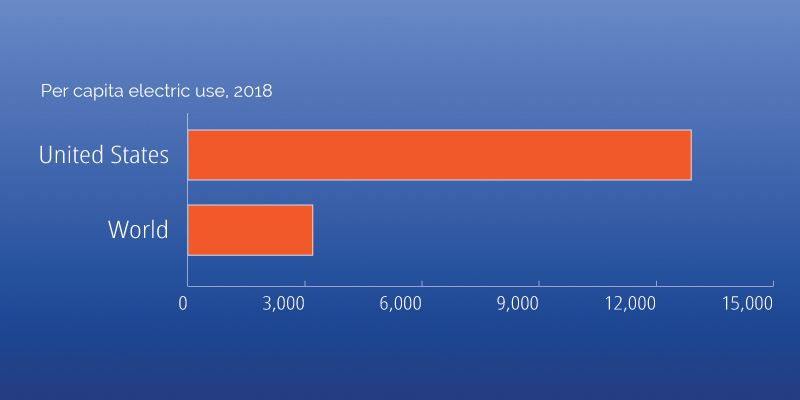At 12,900 kilowatt-hours, U.S. per capita electricity use was more than four times the world average (3,200 kwh) in 2018.
Per capita electric use, 2018

A 2018 study from the Electric Power Research Institute estimated that utility efficiency programs could realistically reduce electricity use by over 365 terawatt-hours by 2040 – equivalent to 8% of annual electricity use in the U.S., or the combined average electricity use of 34 million homes in the U.S.
EPRI found that the three states with the highest total efficiency potential (in gigawatt-hours) are:
- Texas: 44,211 GWh
- Florida: 33,935 GWh
- California: 27,342 GWh
As a percent of total sales, the states with the highest efficiency savings potential are:
- Florida (12.1%)
- Maryland (10.3%)
- New York (9.4%)
A 2019 analysis from the American Council for an Energy Efficient Economy found the potential for a 49% reduction in projected primary energy use through 2050 across the transportation, buildings, industrial, and electric sectors.
This includes the potential for reducing energy use:
|
29% in homes |
36% in commercial buildings |
15% in the industrial sector |
4.5% in transmission & distribution systems |
 |
 |
 |
 |
| 23% from energy efficiency upgrades, 13% from smart control devices | 18% from energy efficiency upgrades, 11% from smart control devices | from “strategic energy management” | Through conservation voltage reduction and other grid optimization technologies |

